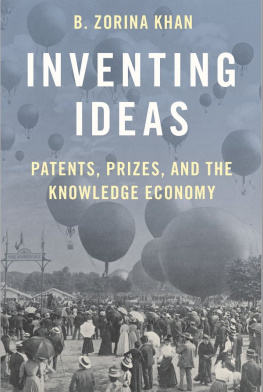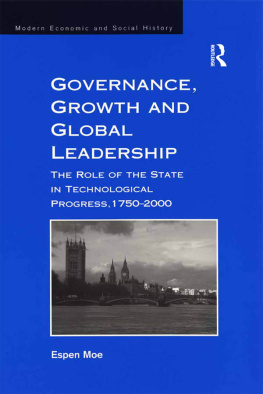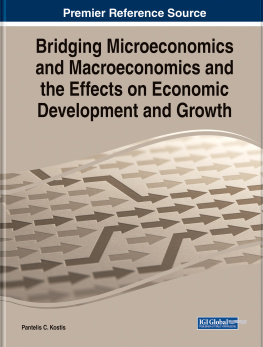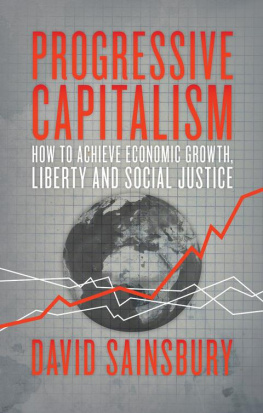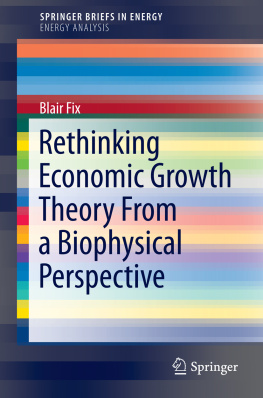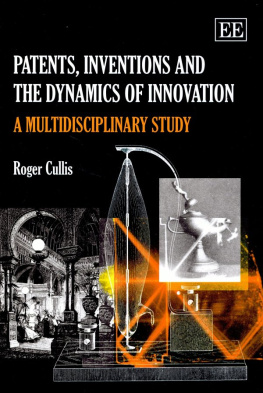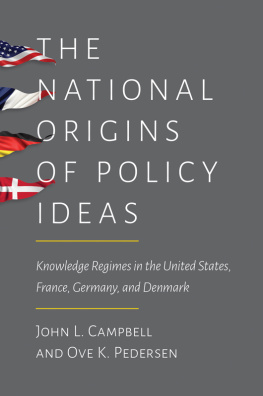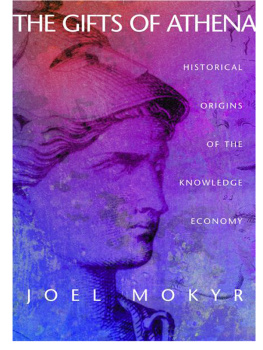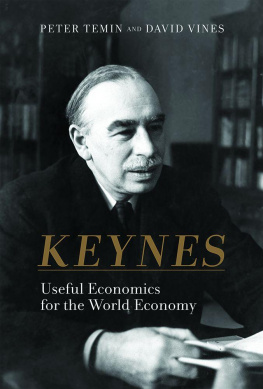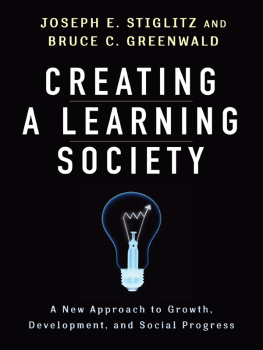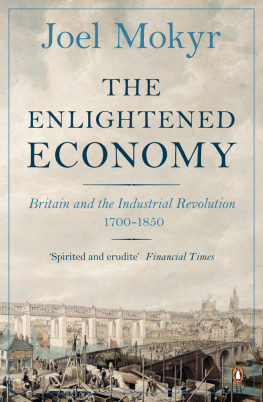Inventing Ideas

Oxford University Press is a department of the University of Oxford. It furthers the Universitys objective of excellence in research, scholarship, and education by publishing worldwide. Oxford is a registered trade mark of Oxford University Press in the UK and certain other countries.
Published in the United States of America by Oxford University Press
198 Madison Avenue, New York, NY 10016, United States of America.
Oxford University Press 2020
All rights reserved. No part of this publication may be reproduced, stored in a retrieval system, or transmitted, in any form or by any means, without the prior permission in writing of Oxford University Press, or as expressly permitted by law, by license, or under terms agreed with the appropriate reproduction rights organization. Inquiries concerning reproduction outside the scope of the above should be sent to the Rights Department, Oxford University Press, at the address above.
You must not circulate this work in any other form and you must impose this same condition on any acquirer.
Library of Congress Cataloging-in-Publication Data
Names: Khan, B. Zorina, author.
Title: Inventing ideas : Patents, Prizes, and the Knowledge
Economy / Khan, B. Zorina, Department of Economics, Bowdoin College and
National Bureau of Economic Research.
Description: New York, NY : Oxford University Press, [2020] | Includes index.
Identifiers: LCCN 2019044713 (print) | LCCN 2019044714 (ebook) |
ISBN 9780190936075 (hardback) | ISBN 9780190936082 (paperback) |
ISBN 9780190936105 (epub) | ISBN 9780190936112 (online)
Subjects: LCSH: Creative ability. | Patents. |
Technological innovationsAwards. | Right of property.
Classification: LCC BF408 .K49 2020 (print) |
LCC BF408 (ebook) | DDC 153.3/5dc23
LC record available at https://lccn.loc.gov/2019044713
LC ebook record available at https://lccn.loc.gov/2019044714
Contents
Tables
Figures
Like financial obligations, intellectual debts become all the more overwhelming if one defers them over time. After a decade spent in different institutions, different regions, and different countries, I can vividly empathize with the owners of an underwater mortgage. It is impossible to fully credit all of the generous colleagues, students, archivists, and support staff who have aided in this project, and who embody and demonstrate the best advantages of the non-market-oriented system that is academia. Liability for any claims is, of course, limited to the author.
The life of the academic, I have often thought, is analogous to that of a medieval troubadour, who wandered from croft to castle, entertaining and educating the populace, in return for shelter and a place at the table (and no doubt being equally harassed by the bureaucratic complexities of the reimbursement system). It would exhaust my publishers strict quota on page length to enumerate the dozens of seminars and workshops where different parts of this manuscript were presented or to itemize all of the attendees whose valuable remarks improved the final output. The short list includes Ran Abramitzky, Marcella Alsan, Michael Andrews, Ashish Arora, Jeremy Atack, Pierre Azoulay, Christopher Beauchamp, James Bessen, Dan Bogart, Kevin Bryan, Lee Branstetter, Dan Burk, Diane Burton, Latika Chaudhary, Wesley Cohen, Robert Cooter, Robert Cull, Harold Demsetz, Rochelle Dreyfuss, John Duffy, Richard Epstein, Joseph Ferrie, Alexander Field, Louis Galambos, Alberto Galasso, Alexander Galetovic, Nancy Gallini, Claudia Goldin, Robert Gordon, Wendy Gordon, Stuart Graham, Avner Greif, Kirti Gupta, Stephen Haber, Walker Hanlon, Wes Hartmann, Paul Heald, Deepak Hegde, Philip Hoffman, Adam Jaffe, William Janeway, Jay Kesan, Karim Lakhani, Mark Lemley, Josh Lerner, David Levine, Ross Levine, Keith Maskus, Robert Merges, Michael Meurer, David Mitch, Joel Mokyr, Petra Moser, Adam Mossoff, Neil Netanel, Tom Nicholas, Alan Olmstead, Lisa Ouellette, Yi Qian, James Robinson, Christina Romer, Jean-Laurent Rosenthal, Bhaven Sampat, Frederick Scherer, Mark Schultz, Gonca Senel, Ted Sichelman, Henry Smith, Richard Sousa, Christopher Sprigman, Daniel Spulber, Manuel Tratjenberg, Steven Wilf, Heidi Williams, Brian Wright, Gavin Wright, Joshua Wright, Arvid Ziedonis, and Rosemary Ziedonis.
Today, as in the past, the European administered system makes the generous assistance of insiders invaluable. I spent the 20142015 academic year at the London School of Economics, which offered not only a front row seat for the Brexit initiative but also the rare opportunity to benefit from an entire department dedicated to economic history. I have been exceptionally fortunate to obtain insights from such outstanding colleagues as Robert Allen, Sean Bottomley, Stephen Broadberry, Kristine Bruland, Carsten Burhop, Neil Cummins, Christiane Demeulenaere, Claude Diebolt, Gerard Emptoz, Giovanni Federico, Dominique Foray, Gabriel Galvez-Behar, Leigh Gardner, Graeme Gooday, Leslie Hannah, Liliane Hilaire-Prez, Per Hjertstrand, Terence Kealey, Alice Kuegler, Debin Ma, Christine MacLeod, Alessandro Nuvolari, Patrick OBrien, Cormac OGrada, Mary OSullivan, Lars Persson, Gilles Postel-Vinay, Erik Prawitz, Albrecht Ritschl, Patricio Siz, Mohamed Saleh, Max Schulze, Leigh Shaw-Taylor, Jochen Streb, Ruth Towse, Felipe Valencia, Stephen van Dulken, Michelangelo Vasta, and Richard Watt, among others.
This book would not have been possible without the contributions of numerous archivists and research librarians, especially those at the Royal Society of Arts in London, U.S. National Archives, U.S. Patent Office, San Francisco Mechanics Institute, Franklin Institute, Socit d'encouragement pour l'industrie nationale, Conservatoire national des arts et mtiers, Institut national de la proprit intellectuelle, Bibliotheque nationale de France, Archives nationales de France, Archives de Paris, British Library, and National Archives of the United Kingdom, as well as the libraries of Bowdoin College, University of California (Berkeley and UCLA), Harvard, LSE, Stanford, Boston Public Library, and New York Public Library. Moreover, some of the material in these chapters was published as journal articles and in edited volumes, and I am grateful to the academic publishers who gave permission for their use in this book. Special thanks are due for the efficiency and insights of the editors and assistants at Oxford University Press.
This overall project was made possible by generous funding from the National Science Foundation and from Bowdoin College, over the decade during which the research was completed. Alison Oaxaca of the National Bureau of Economic Research was exceptionally capable and caring throughout the grant management process. A particularly beneficial year at the Hoover Institution of Stanford University was funded by a Hoover National Fellowship. Other awards include the Arch W. Shaw Fellowship, Fletcher Research Award, Engelberg Fellowship, Leonardo da Vinci Fellowship, and Kenan Fellowship. At Bowdoin College, I am indebted to Ginny Hopcroft, Barbara Levergood, Carr Ross, Guy Saldanha, and Elizabeth Weston. During this period, numerous undergraduate research assistants dedicated their rare Maine summers to digitizing all of these data sources, and I cannot thank them enough for their enthusiasm, meticulous care, and proprietary interest in the project.
Among all these exceptional friends and colleagues, three individuals have played a central role as inspiring, altruistic mentors who gave their time and attention without counting the costs in terms of the next best alternative sacrificed. Stanley Engermans generosity dates back to our meeting in my first year as a graduate student at UCLA, and his repeated requests to send him my manuscripts for detailed comments have not ceased since that day. Naomi Lamoreaux is no doubt a little dismayed by how well I recall her observations from decades ago, but it is a measure of the extent to which I have benefited from her insights about research and life, the universe and everything. And, it goes without saying, not a day goes by without my thinking about Kenneth Sokoloff (19522007) with unending regard and gratitude, and benefiting from his unparalleled example; the best compliment of all would be to know that his continued influence can be detected in these pages.

